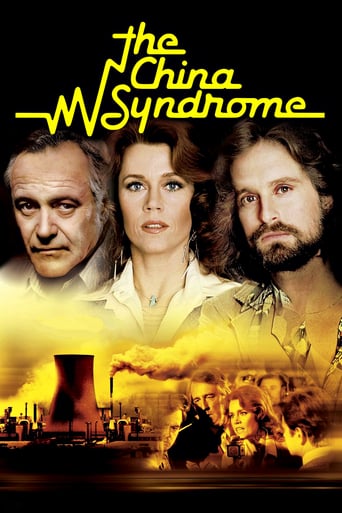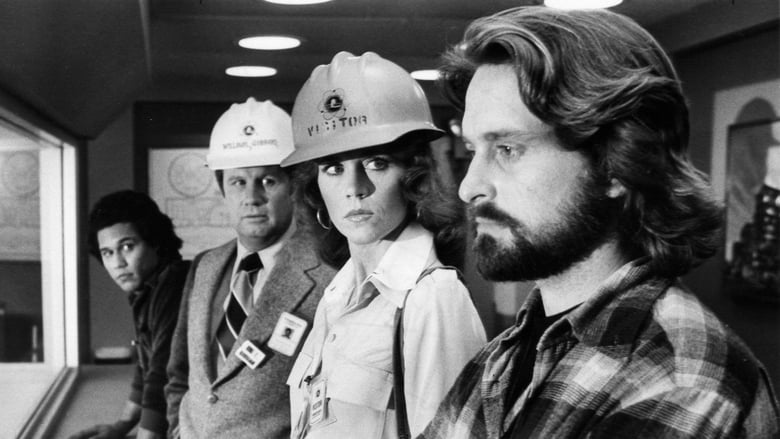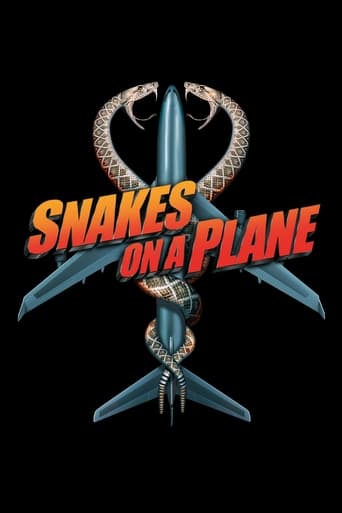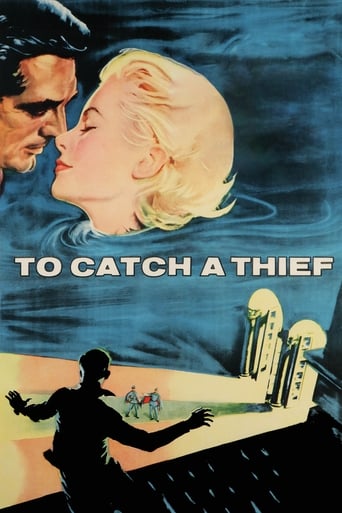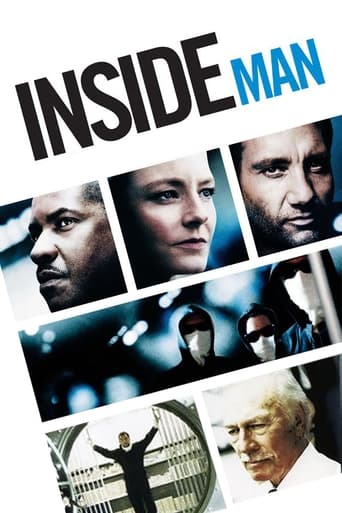The China Syndrome (1979)
While doing a series of reports on alternative energy sources, opportunistic reporter Kimberly Wells witnesses an accident at a nuclear power plant. Wells is determined to publicize the incident, but soon finds herself entangled in a sinister conspiracy to keep the full impact of the incident a secret.
Watch Trailer
Cast


Similar titles
Reviews
It was strange coincidence that when "The China Syndrome" was released, a real chemical industrial disaster occurred when the Three Mile Island Incident located in Dauphin County, Pennsylvania happened 12 days after the film was released. The ticket sales skyrocketed at the box office, but the industrial community gave this film a bit of backlash for misconstruing the movie to the real events that happened which resulted in pulling the film out from several theatre outlets. Many viewers though this was another James Bridges character studies of ordinary civilians going about their day-to-day duties crossing a path between going about with their jobs and the questionable situations regarding the ethics that come with their occupations.A film like this one would be hard to craft in today's market of filming, not just about the nuclear power plant situation, but about journalism from a feminist's perspective. The film's main language does consist of overpowering technical jargon that's easy if you have an engineering degree, but incoherent if you don't. We get an in depth look at the power station along with its fuel pellets and damping rods. The nuclear station emphasis mostly on high-tech applications like SCRAM, auxiliary feed valves and the titular China Syndrome which is a thing of great concern but not the radioactive annihilation the movie makes it out to be.In spite of all the paranoia and frightful concerns, Bridges has succeeds in adding little subtleties that make this film all the more satisfying and irresistible to watch. The sound effects are clearly at the top of the line when delivering a story. When the first alarm sounds off, is the perfect call to implement panic towards the characters and the viewers. It's really quite chilling. Then you have supervisor Jack Godell (Jack Lemmon)telling everyone to shut that alarm off but is aware from the start that something is just not right. Then we come to a bit of silence which is subtle and yet very disturbing sort of like we get the blood- curdling sound likely to make you go deaf and then it just stops and replaced by the building's rumblings and workers muttering words that lack in anything but comforting.The scenes Bridges feels more at ease is when he turns his attention to the broadcast studios mainly because Bridges started his career in broadcast journalism where we see the eventual boost in the career towards ambitious reporter Kimberly Wells (Jane Fonda). Fonda is really outstanding in her Oscar nominated performance as a reporter trying to cover more serious news coverage like this one but is sadly held back due to the narcissism of the newsroom and is only looked upon as eye candy. While this is happening, Bridges grills incompetent TV producers through their half-baked news segments and their chronic sexist ways while this heavy-hitting industrial catastrophe falling into becoming more dignified.Bridges makes his film come to life by adding more inventive ways to keep the chill factor alive in his movie without spoon-feeding his audience. The courier gets killed in fatal car crash scene is a nod to the infamous Karen Silkwood story. The exciting scene where Godell outsmarts his mysterious killers is the kind of thing Bridges wants as we watch a jittery person on his way to work while at the same shows his incredible exhibition of demolition driving.The climax of "The China Syndrome" was handled for better and worse is reasserted to archaic values. For example the main one is for the broadcast worker's job to gather as much news coverage as efficient and informative as possible. However, Godell can't give that much because he's only a plant supervisor and Wells is way too inexperienced to be caught up in the middle of the ruckus. Many thrillers before and after this one shows how complicated it is more important to gather information to the general public than hostages, weaponry or relics. And then we get the same routine where the brave but foolish reporter where she maintains her composure and to confidently claim that she knows exactly what she's talking about.At first impression, we don't get very to see except steel and glass, with the exception of browsing over Los Angeles interstate highways. But then Bridges adds the intensity of blinking lights, situation boards, some public relations joker informing the plant technicians that there's a snag and the system that needs urgent attention and we get blurry video footage of monstrous steel masses on the brink of collapsing. To top it all off, the stoic robotic sounds of the teleprinter printing out in step-by-step procedures of a potentially catastrophic disaster.
THE CHINA SYNDROME is another example of those great '70s-era conspiracy thrillers that still outdo most similar fare being released in cinemas today. It's a realistic, thought-provoking and sometimes terrifying tale of mankind's reliance on nuclear energy, and the problems that arise thanks to laziness and negligence on our parts.Jane Fonda has never been better playing a TV reporter trying to get the scoop of her life, with a dependable Michael Douglas playing her tireless cameraman. Best of all, however, is Jack Lemmon in a straight role as a worker at a nuclear power plant who soon becomes aware that something very fishy is going on at his place of work. The cast is loaded with familiar faces, particularly at the news studio with James Karen and Peter Donat in support.THE CHINA SYNDROME quickly grips you at the outset with an outstanding set-piece, one that's full of tension. After this things change down a gear, and then it's a slow burn for a while. Towards the end though, they really pick up again with some chilling moments and a grand climax. It's a bit of an emotional roller-coaster ride and what makes it so effective is that it's easy to believe this could really happen. A great thriller.
There is an accident at a nuclear Power Plant, while a TV news team is filming a routine spot. The cameraman (Michael Douglas) secretly films the panicked actions of Plant Manager (Jack Lemmon) in the control room. Reporter (Jane Fonda) tries to get the story on the air. She is refused. So Fonda and Douglas dig into the accident, the more they dig, the less they believe it.Meanwhile, Lemmon has been conducting his own investigation. The performances are crucial to the movie's success, and they're all the more interesting because the characters aren't just in the wrong place at the wrong time. Oscar winner Fonda is superb as the TV reporter. Douglas is spot on as the bearded, cameraman. And at the very core of the movie is Jack Lemmon, reluctant to rock the boat, compelled to follow his conscience. He totally deserved his Oscar as he was awesomeOther than over the opening credits, I don't think I heard any music score in the picture.. The lack of a score added to the tension I thoughtStill relevant today and well worth checkin out
I recently caught this film on TCM (though I own it on DVD). It was released 35 years ago to this day, yet it still holds a resonance today.In a nutshell, the film can best be summarized as this: A TV reporter and her camera crew in Los Angeles travel to a local nuclear plant to cover a story about how nuclear power works. Basically, it's a PBS special crammed into a few minutes; a educational time-filler, if you will. When they uncover is an accident narrowly avoided; a simple story becomes personal as they set out to expose what they witnessed in the hopes of stopping it from happening again before the next mistake takes a turn for the worst.But "The China Syndrome" is about more than that.It is about the politics of journalism. It's about the sensationalism of it, achieved through market research; grim news is briefly summarized, then never heard about again. The minutes are spent more on weather, sports, and the time-fillers that populate the final ten-to=fifteen minutes of the average newscast- the kind done in the vain hopes of putting a smile on the viewers' face by the end of the show.Which brings us to this point: it's about sexism. Kimberly Wells (played by Jane Fonda) is the reporter on call when a tiger's birthday is being celebrated, or special human telegrams commemorating special events in life are in need of a spotlight. When she's given the go to cover the workings of a nuclear facility, she and her cameramen (played by (also producer) Michael Douglas and Daniel Valdez) are given a tour of the Ventana power plant... and what is captured on camera could hold the key to saving many lives.They witness the makings of an accident that's only contained in the nick of time by shift supervisor Jack Godell (played by the late, great Jack Lemmon) and his able-bodied team. The news crew decides to run with the story, thinking it will give attention to the catastrophe... and possibly promote Kimberly into the big time.Unfortunately, there's one thing standing in her way: her boss (played with menace, at least I feel that way, by Peter Donat). Not only does he seem worried about the legal and emotional reverberations this story will cause, but he thinks the market research loves her where she is: at the bottom of the journalism food chain. Fortunately, however, Kimberly will stop at nothing to rise above the muck and make sure the accident is brought to light."The China Syndrome" is about greed. Godell learns not only are the valves old; so are the x-rays. He tries to convince his superiors that the situation needs to be fixed before it gets out of hand and too late to stop; but they refuse to listen because of the money involved (it would cost $20 million to fix, which is very expensive by 1979 standards). They will risk lives (not realizing that even they are vulnerable) if it means being rich beyond their wildest dreams.But most importantly, "The China Syndrome" is about power. Not just nuclear power, mind you, but the power that greed and fear jointly fuse together to represent. There is another power at hand, the power that Godell must take into his own hands to be heard, taking the facility at gunpoint and demanding to speak to Kimberly. By the climax of the film, it's not about Godell or Kimberly, it's about the people, whose safety lies in their hands.There's no happy ending here; the fact that there's no score throughout the film and the end credits symbolizes the silence Godell has been forced into- but then again, there wasn't supposed to be. Again, I point out, it's about power; a power we are susceptible to, a power we are sometimes gullible to. We can lie victim to it, or like Godell, Kimberly, and her cameraman, we can do something about it.If Participant (a production company that produces films relevant to the happenings in today's society) had existed around 1979, they would have wanted to "take part" in this.The film was almost ignored... until the Three Mile Island incident days later that this film echoed, with quite a haunting similarity. This echo kept some from seeing it out of fear of the prophecy this film highlighted; however, it left some curious; what could we have learned from this that may have helped us cap the situation for real before it could even start? It leads me to believe this: through the power of cinema, Columbia Pictures and the filmmakers predicted a real-life disaster before anyone else did. We, as news makers, as nuclear workers, maybe as politicians, or, like me, as ordinary people, couldn't comprehend what they were trying to say. Now, it's too late. (PG)

